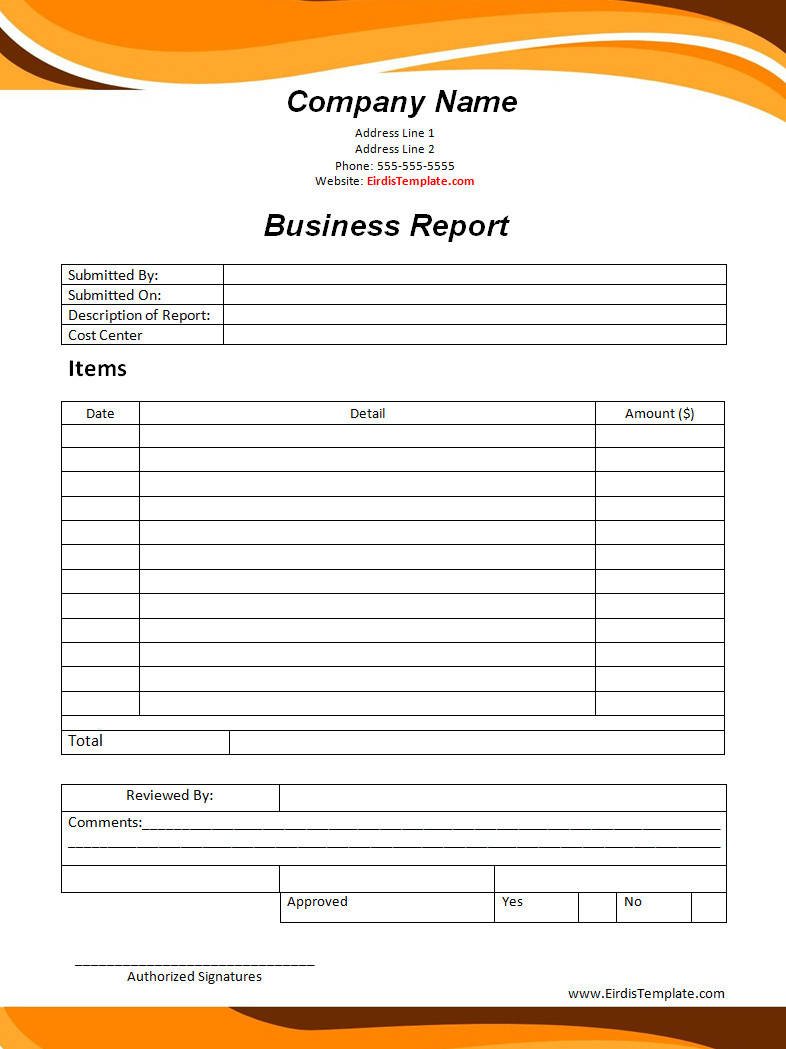Business reports play a crucial role in providing clear, factual, and analytical information to help stakeholders make informed decisions, track progress, and address challenges.

These reports transform raw data into meaningful insights by presenting findings, conclusions, and recommendations. They serve as a vital tool for communication, progress monitoring, problem-solving, and creating an official record of business activities.
What is a Business Report?
A business report is a document that provides detailed information on a specific aspect of a company’s operations. It typically includes data analysis, findings, conclusions, and recommendations.
Business reports are used to communicate important information to stakeholders, such as managers, investors, and employees, to help them make informed decisions.
Benefits of Using Business Reports
There are several benefits to using business reports in organizations:
Enhanced Decision-Making
Business reports provide stakeholders with the information needed to make informed decisions. By presenting data in a structured and organized manner, reports enable decision-makers to evaluate options, weigh risks and benefits, and choose the best course of action based on evidence and analysis.
Improved Communication
Business reports serve as a formal means of communication within the organization. By documenting key information, findings, and recommendations, reports ensure that stakeholders are on the same page regarding business activities and outcomes. This improved communication fosters collaboration and alignment towards common goals.
Efficient Resource Allocation
Business reports help organizations allocate resources effectively by identifying areas of strength and weakness. By analyzing performance data, reports enable stakeholders to prioritize investments, streamline processes, and optimize resource utilization for maximum impact and return on investment.
Strategic Planning Support
Business reports are essential for supporting strategic planning efforts within the organization. By providing insights into market trends, competitor analysis, and internal capabilities, reports help in developing strategic initiatives and setting long-term goals that align with the company’s mission and vision.
Performance Evaluation and Recognition
Business reports enable organizations to assess the performance of employees, departments, and projects. By measuring key performance indicators and benchmarks, reports help in recognizing achievements, identifying areas for improvement, and providing feedback that drives employee motivation and engagement.
Risk Mitigation
Business reports play a critical role in identifying and mitigating risks that may impact the organization’s operations. By conducting risk assessments and scenario analysis, reports help stakeholders anticipate potential threats, develop contingency plans, and implement measures to safeguard the business from adverse events.
Common Uses of Business Reports in Organizations
Business reports are used for various purposes within organizations, including:
Financial Reporting
Financial reports are crucial for conveying the organization’s financial performance to stakeholders. These reports include income statements, balance sheets, cash flow statements, and other financial metrics that provide insights into the company’s profitability, liquidity, and solvency.
Operational Reporting
Operational reports focus on the day-to-day activities and performance of the organization. These reports track key operational metrics, such as production output, sales performance, inventory levels, and customer satisfaction, to ensure that operations are running smoothly and efficiently.
Strategic Planning
Business reports play a crucial role in supporting strategic planning efforts within the organization. Strategic reports analyze market trends, competitive landscape, and internal capabilities to develop strategies that position the company for long-term success and sustainable growth.
Performance Evaluation
Performance reports assess the effectiveness of employees, departments, and projects within the organization. By measuring key performance indicators and outcomes, these reports help in identifying areas of success, areas needing improvement, and opportunities for professional development and recognition.
Key Components of Business Reports
Several key components make up a business report:
Executive Summary
The executive summary provides a high-level overview of the report, summarizing the key findings, conclusions, and recommendations. This section is designed to give stakeholders a quick understanding of the main points without having to read the entire report.
Introduction
The introduction sets the stage for the report by providing background information on the topic or issue being addressed. It outlines the purpose of the report, defines key terms, and establishes the scope and objectives of the analysis to follow.
Methodology
The methodology section describes the methods used to collect and analyze data for the report. It explains the research approach, data sources, data collection techniques, and analytical tools employed to ensure the validity and reliability of the findings presented in the report.
Findings
The findings section presents the results of the data analysis, highlighting key trends, patterns, and insights derived from the research. It includes tables, charts, graphs, and other visual aids to support the findings and make the information more accessible and understandable to stakeholders.
Conclusions
The conclusions section summarizes the main points of the report and draws conclusions based on the findings presented. It synthesizes the data and analysis to highlight the significance of the results and their implications for the organization’s operations, performance, and future direction.
Recommendations
The recommendations section offers actionable suggestions for decision-makers based on the conclusions drawn from the report. It outlines specific steps, strategies, or interventions that stakeholders can implement to address challenges, capitalize on opportunities, and enhance the organization’s overall performance and competitiveness.
Business Report Template
A business report is a professional tool that helps structure information, findings, and recommendations in a clear and organized format. It ensures consistency, saves time, and improves communication across teams or stakeholders.
To present your information effectively, use our free business report template and create polished, professional reports with ease!
Business Report Template – Word
- Free Printable Monthly Expenses Template - February 12, 2026
- Printable Monthly Employee Schedule Template - February 11, 2026
- Printable Monthly Budget Planner Template - February 10, 2026